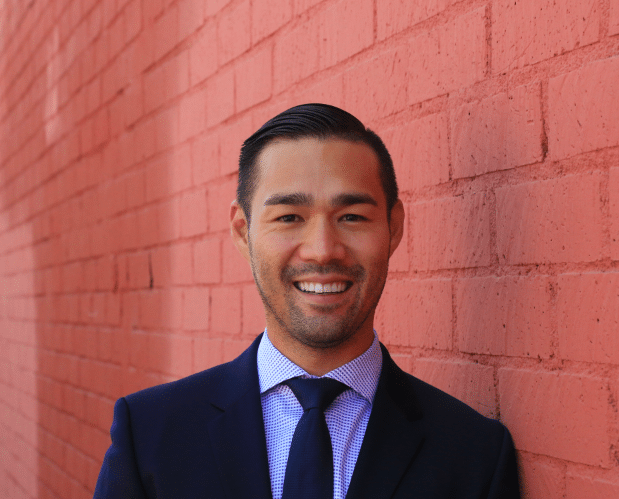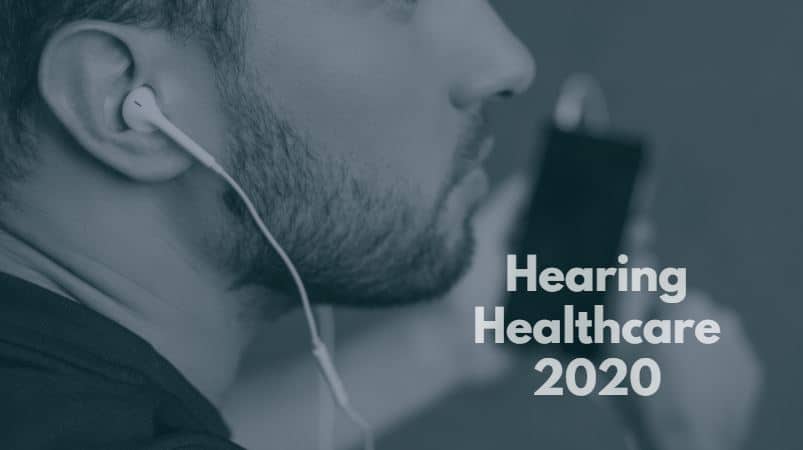Hearing Healthcare 2020 is a column where we explore the forces behind the changing landscape and disruptions impacting the hearing healthcare industry.
This week, HHTM President and CEO, Kevin Liebe interviews the team behind AudioCardio, a mobile app that is said to offer a “data and science backed sound therapy designed to maintain and strengthen your hearing” through the use of a technology referred to as Threshold Sound Conditioning.
The company’s app is available on iPhone and Android devices.
KL: Can you please explain what Threshold Sound Conditioning is?
AC: Threshold Sound Conditioning (TSC) is the delivery of acoustic signals at an individual’s hearing threshold levels (just below audible levels). TSC is designed to decrease hearing threshold with sound conditioning in individuals with sensorineural hearing loss due to otoacoustic trauma.
TSC has the potential to activate auditory pathway plasticity and improve basal frequency hearing as measured by pure tone audiometry.
KL: So this process of sound conditioning has been shown to actually improve hearing?
AC: Our peer reviewed study with Stanford University shows a minimum of 10 dB change at the frequencies targeted by our Threshold Sound Conditioning technology.
This is further supported by more than 2,000 customers and is comparable to self-reported effects by more than 200 testimonials and reviews since our launch. AudioCardio customers have reported and noticed these significant and perceivable changes to their hearing in just three to four weeks.
KL: You mention research. What sort of science or research data supports this concept?
AC: In our recently published randomized controlled clinical study with Stanford University, we observed a significant improvement of pure tone hearing thresholds of up to 10 dB or more in 78% participants. Detailed information can be found at: https://www.ncbi.nlm.nih.gov/pmc/articles/PMC7314479/
A white paper regarding sound conditioning can also be read here.
KL: How exactly does AudioCardio implement this feature?
AC: The AudioCardio mobile app allows individuals to use their smartphones (or tablets) paired with their headphones (or hearing aids) to quickly assess their hearing to calibrate and generate a personalized sound therapy (Threshold Sound Conditioning) at the barely audible level.
In order to personalize the sound therapy, an individual would go to a very quiet room with their headphones connected to their device (Bluetooth or wired), move the volume slider on the screen to the barely audible level or cusp of sound, and set it there. The barely audible level is defined by the last decibel level before the sound being played is undetectable. This step is repeated nine more times for a total of five times for the left and five times for the right. AudioCardio’s algorithm will then generate personalized sound therapies based on the individual’s in-app assessment by targeting the region with the highest hearing threshold or region with the most hearing loss for each ear. AudioCardio’s Threshold Sound Conditioning technology then delivers a consistent and repetitive sound therapy (inaudible) for an hour per day.
After consistent daily use, the sound therapy (TSC) may become noticeable or easily recognizable. The user should then retake their assessment to calibrate and generate their new sound therapy based on the changes to their hearing. Users would then continue to repeat these steps to make further progress.
The sound therapy is completely passive, runs in the background and does not require active engagement so that you can continue with other activities without interrupting them.
KL: How long does it typically take before improvement is observed? Does there seem to be any pattern as to what frequencies or degree of improvement is typically seen among people using this technology?
AC: AudioCardio’s goal is to help maintain and strengthen an individual’s ability to recognize, distinguish and comprehend familiar sounds at lower volume levels. Our clinical studies and research have shown that individuals make a minimum of 10 dB change within two weeks.
However, our mobile app data shows that most individuals using the AudioCardio app experience this type of change after three to four weeks of use. Our understanding and interpretation of this data shows that this is primarily due to lack of adherence to the recommended usage caused by missing days and not reassessing hearing thresholds with progress as directed.
KL: People would probably wonder how long the potential hearing improvements might last. What have you been seeing so far with your active users?
AC: Maintaining progress can vary based on multiple factors- like if the individual works in a noisy environment such as a factory, attends concerts, sporting events and if perhaps they get something like an ear infection. However, our customers have reported that they are able to maintain their levels for several months after completely stopping use and others are sharing that they continue to use the app to maintain their progress by using the app 3-4 times per week.
Some of these individuals have been using AudioCardio since January and March of 2020 which means they are maintaining their progress for the last seven to ten months. We don’t necessarily promote this type of less frequent use, but we do know that individuals are maintaining their progress by using it in this manner.
KL: Thanks for taking the time to talk with me today. Where can people go to learn more about what you’re doing at AudioCardio?”
AC: We appreciate your thoughtful questions and for taking the time to share our research. Driving education and awareness on the importance of hearing health and the innovative technologies that are being developed are pivotal to providing better care and outcomes now and in the future. Our goal is to compliment and make the experience with current solutions on the market better and to provide an easily accessible and affordable solution to help those in need.
Readers can learn more about AudioCardio at www.audiocardio.com and find our peer reviewed Stanford study in the U.S. National Library of Medicine at https://www.ncbi.nlm.nih.gov/pmc/articles/PMC7314479/.
 Chris Ellis is a startup veteran with four previous exits where he held roles ranging from National Channel Manager to Head of Sales in which he led the go to market strategy, strategic partnerships and distribution models. Chris is currently CEO and cofounder of AudioCardio™, a digital health and wellness company that has developed technology that aims to restore sensorineural hearing loss.
Chris Ellis is a startup veteran with four previous exits where he held roles ranging from National Channel Manager to Head of Sales in which he led the go to market strategy, strategic partnerships and distribution models. Chris is currently CEO and cofounder of AudioCardio™, a digital health and wellness company that has developed technology that aims to restore sensorineural hearing loss.
 Sam Kwak is an inventor of various technologies in the hearing healthcare industry. He specializes in the research and development of hearing related innovative technologies and products. Stanford University has clinically proven the efficacy of his state-of-the-art technology “TSC (Threshold Sound Conditioning).” Sam studied Cognitive Acoustics and Systematic Musicology at the University of California, Los Angeles as a Ph.D. student. He worked as a senior researcher in the Music Cognition and Acoustics Laboratory of UCLA and earned a M.A. and B.A. in Psychological Acoustics and Systematic Musicology from Seoul National University, Korea.
Sam Kwak is an inventor of various technologies in the hearing healthcare industry. He specializes in the research and development of hearing related innovative technologies and products. Stanford University has clinically proven the efficacy of his state-of-the-art technology “TSC (Threshold Sound Conditioning).” Sam studied Cognitive Acoustics and Systematic Musicology at the University of California, Los Angeles as a Ph.D. student. He worked as a senior researcher in the Music Cognition and Acoustics Laboratory of UCLA and earned a M.A. and B.A. in Psychological Acoustics and Systematic Musicology from Seoul National University, Korea. Kevin Liebe, AuD, is President and CEO of Hearing Health & Technology Matters (HHTM). He also serves as a Scientific Advisor to Neosensory, a Silicon Valley based startup pioneering experiences in sensory augmentation. As an audiologist, Kevin has experience in variety of settings, including private practice, ENT, and industry. He is a past president and board member of the Washington State Academy of Audiology.
Kevin Liebe, AuD, is President and CEO of Hearing Health & Technology Matters (HHTM). He also serves as a Scientific Advisor to Neosensory, a Silicon Valley based startup pioneering experiences in sensory augmentation. As an audiologist, Kevin has experience in variety of settings, including private practice, ENT, and industry. He is a past president and board member of the Washington State Academy of Audiology.





